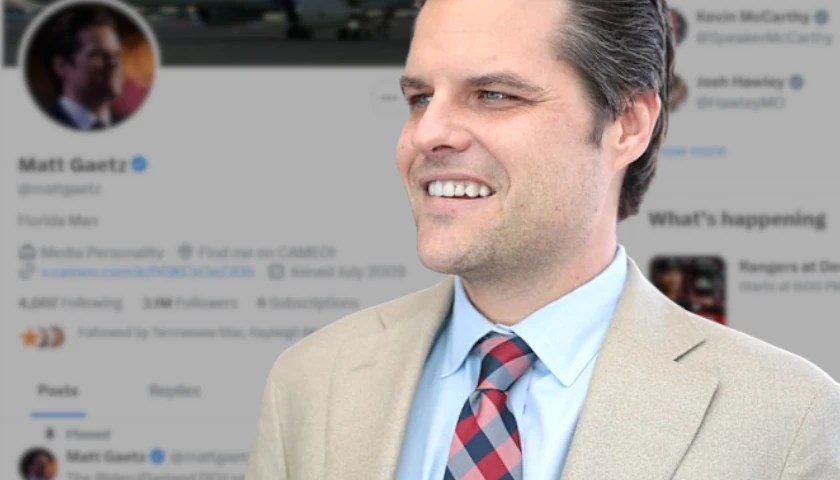by Alexander Riley
One of my favorite current sources of unintentional humor, NPR, provided another comedy jewel the other day.
It was an interview with Maia Kobabe, the author of Gender Queer: A Memoir, a book NPR describes as a “graphic memoir” (meaning it includes illustrations throughout like a comic book). This book has been getting critical attention from some groups, including concerned parents, who are not entirely ideologically on board with current woke protocols on gender and sexuality. And, indeed, considering the book contains pornographic images, it is alarming that it can be found in school libraries.
Kobabe, apparently, uses “modified Spivak pronouns,” whatever that means. I’m going to politely refuse to use any pronouns here: As a general rule, I prefer to stay out of this mischievous little pronoun game the woke have invented as a device for chipping away at the cultural edifice. Any participation in the pronoun game—even just the presentation of one’s own “preferred pronouns”—cedes ground to an ideology with an ultimate goal of the complete upending of traditional Western culture. Note well how carefully NPR also tries to avoid pronouns in their write-up of the interview, almost certainly quaking in fear at the thought of being branded as culturally insensitive or worse by Kobabe or woke allies if they make the slightest trauma-producing misstep on this cosmically important matter. And I couldn’t help but notice that in the one instance where they do use pronouns for Kobabe, they are the wrong ones! I await their correction and abject apology for the trauma they have caused in that transgression.
But this pronoun debacle is only one of many signs that Kobabe is a lacking example for children or adults to emulate. Beyond Gender Queer’s terrible ideology, it’s clear that Kobabe is simply a poor communicator. From the very first statement Kobabe makes in the interview, we are given evidence of how little is required in the way of communicative prowess for the woke media to fawn over you:
“‘I wrote it sort of towards an audience who I knew, like, loved me and supported me and knew me and was very sympathetic to me,’ Kobabe told NPR. ‘And I think that let me write without any, really, fear.’”
Typically, people who talk like this are either 13 years old, or if they are adults, they should probably not be taken as paragons of clear and deep thought. How one speaks reveals much about how one thinks, and the evidence in this interview demonstrates that Kobabe must be quite confused indeed. The interview is, boiled down to the essentials, a portrait of a person who is morbidly obsessed by the “trauma” caused by what almost all human beings know as simply being alive. Kobabe is crushingly “traumatized” while somehow also just capable of enough psychological control to produce a book about the “trauma” and later make it to the phone for an interview about being filled with anxiety of “traumas” past, present, and future.
A little further into the interview, we get this painfully incoherent set of observations about Kobabe’s struggles with normal periodic doctor visits for someone of Kobabe’s biological sex:
“I was like, I just feel like there’s some stuff going on with me about gender. I can’t decide if I’m a girl who feels kind of like a boy or like a gay man trapped in a girl’s body or if I’m, like, a boy but in a very feminine way, or, like, am I a lesbian? It was just very confusing. And I just kept feeling like I was trying on, like, clothes that didn’t fit. … But, yeah, the pap smear exam scenes — there are two of them in the book — they were hard to write. Those were kind of the only scenes that when I sat down at my desk to draw them, I was like, I don’t want to have to live in this memory again for the amount of time it’s going to take me to draw these pages. This is an unpleasant experience, to be reliving this. I mean, half of it’s kind of like psychological. I don’t enjoy being reminded about this part of my body.”
I, like, certainly do see from this that, like, Kobabe has, like, “some stuff going on.”
But you know what? I don’t much enjoy being reminded of the fact that people of my sex and age are prone to various cancers that might kill me either. Yet somehow this doesn’t provoke any sense of unbearable moral suffering on my part when doctors examine me for evidence of these cancers. It’s certainly not comfortable, but the doctors are simply doing what medical science can do to ensure my good health. Kobabe’s exaggerated reaction to something that has only the goal of protecting Kobabe’s health is not evidence of something objectively wrong with the world, or with medical science, as Kobabe seems to believe. The problem is clearly elsewhere.
Even if there were no moral grounds on which to question books like this one being made available to young children (and having looked at the images that seem concerning to Kobabe’s public critics, I believe there are such grounds), there would certainly be intellectual grounds for keeping it away from impressionable minds. I find it difficult to imagine how an educator who takes that calling seriously could want a child to see this inarticulate, befuddled person as an exemplar of the literary and communicative arts worth emulating or admiring.
– – –
Alexander Riley is a professor of sociology at Bucknell University in Pennsylvania. All views expressed are his and do not represent the views of his employer.
Photo “Gay Pride Parade” by philippe leroyer. CC BY-NC-ND 2.0.




